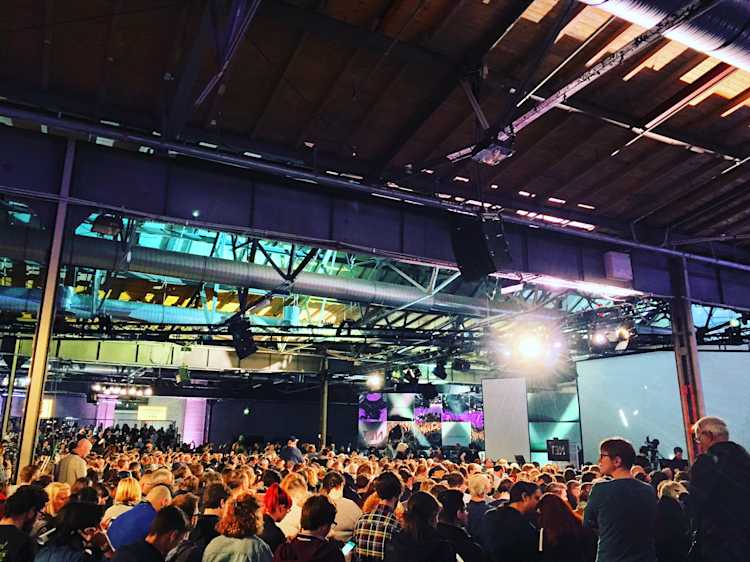Article
re:publica TEN: What We Learned

Last week saw the 10th anniversary of re:publica in Berlin. From 2-4 May, over 8000 visitors and 770 speakers from around the world descended on Station Berlin, just a stone’s throw from the Edenspiekermann office, all with one interest: digital culture. re:publica TEN was an event not to be missed, and our team were there to discover the newest trends. Here, Sebastian, Director of People & Talent, gives us his stand-out moments from the event.
1. Which talk or event inspired you the most, and why?
The most eye-opening were the talks by Sarah T. Roberts. She has researched the practices and, most importantly, the working conditions of those who keep the internet (mostly) clean: content moderators. Commercial Content Moderation (CCM) is carried out by contractors for the big social networks like Facebook, Google, Twitter, and Youtube. Most of the “dirty work of the internet” is done in the Philippines, where, due to the mainly Catholic population, workers understand Western value systems on which these communities are based. Also, as Roberts points out, the workers often regard their gruesome job as “doing the Lord’s work”. Filtering the most cruel, disgusting and abhorrent content from the internet to keep it usable for the rest of us is, in fact, a mentally harmful job.
2. What are the three most important new trends?
New ways of working. The question of how we will work in the (near) future drives a lot of companies. Some are saying goodbye to the desk job, while others are moving further into working agile, like us. Very few are doing the next step. People kept throwing the word “agile” around, but mostly just as another word for flexible or adaptable, which isn’t really on point. It’s interesting to see that the German government has joined in with the discussion early, bringing unions, employers and other stakeholders together to foster a constructive debate about how we’ll work in the future.
Big data for people analytics. This means using the massive amount of data generated by enterprise solutions like Performance Management Systems, Applicant Tracking Systems, etc., to measure and even predict the success of each individual. Needless to say, this is something that needs to be governed strictly and used carefully.
Talent acquisition and retention. Every employer wants only the best employees. Attracting, identifying and keeping those employees isn’t going to get easier. Generation Y has its own demands and employers need to stop whinging about them—it’s a given, and you have to deal with it.
3. What three things did you take away from re:publica ?
Keep moving: change has become constant. The transformation you thought you only just survived or managed might be leading up to the next big thing. Always ask yourself: what’s next?
Keep listening: talk to people, be it your colleagues, employer, researchers, influencers, or those from different fields. It keeps your mind open, and might just give your job or career its next push.
Stay flexible: you’ll have several jobs in the same organization soon, because you’re good at more than one thing.
4. Who should we keep an eye on?
Big corporations that are building more and more labs, think tanks, internal startups, and Ideenschmieden. Whatever they call them, it’s the surrender to crusty ancient structures and processes that didn’t even work back in 1976. Big consultancies like McKinsey and Boston Consulting have them. Banks like Deutsche Bank have them. At re:publica, the two former government agencies turned massive behemoths, Deutsche Telekom and Deutsche Bahn, gave a glimpse into what they’re doing there. It will be interesting to see how these speed boats will influence the course of the giant supertankers of the world economy.
5. Your personal summary in one sentence?
The conference equivalent of click-bait is session-title-bait.